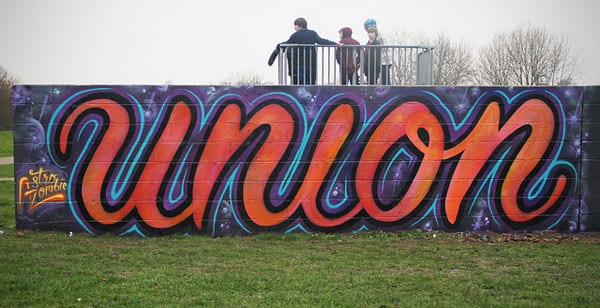
February 27, 2019; WBUR
Over the past few years, several major organizations faced the realization that their management structures were not as transparent as they perhaps had thought; they had enabled or overlooked management-level employees who bullied, harassed, and otherwise made life difficult for lower-level staff. Their responses varied somewhat: National Public Radio (NPR) increased human resource (HR) capacity and harassment training; the Black Parent Initiative, the Metropolitan Opera, Fox News, Doctors Without Borders, and others fired from one to 19 members of leadership staff. But at WBUR, Boston’s public radio station, the employees took it upon themselves to create an opportunity for more employee input and a healthier workplace culture by forming a union.
The ball began rolling on this initiative nearly a year ago, when popular host Tom Ashbrook of On Point was let go from WBUR after an investigation by Boston University (BU), which owns WBUR’s broadcast license, found that he “created an abusive work environment.” Like the Met’s James Levine, Ashbrook proclaimed himself “deeply disappointed” by the decision; meanwhile, several WBUR employees found fault with the report because it did not find that his behavior constituted sexual harassment, which they said they had experienced.
In the wake of this uproar, BU hired a consulting firm to assess concerns about workplace culture. They found that staff had generally low morale; 65 percent thought WBUR did not have “an environment where employees feel they are treated fairly,” though 74 percent said they thought they had “a respectful work environment.”
The report written by BU recommended solutions like hiring an HR manager, improving manager training, and clarifying reporting structures. While these suggestions did correspond to specific employee complaints, none involve greater trust and agency for the staff who were reporting the issues. When BU recommended hiring yet another consultant to help improve conditions, senior producer Kelly Horan said, “My heart sank.”
Over the summer, according to digital producer Ally Jarmanning, a small group of staffers reached out to SAG-AFTRA (Screen Actors Guild-American Federation of Television and Radio Artists) about “what the benefits of unionization might be, whether it was right for us, and how to go about it.” They also talked to other publicly owned media stations across the country that had unionized. (Workers at NPR, Vice Media, Seattle’s KUOW, and others are represented by SAG-AFTRA as well.)
The momentum was tremendous—in part, says Jarmanning, because employees used techniques known to organizers: individual and small-group conversations, responding to concerns, and gaining a “critical mass of support” before they voiced any demands to management. When employees submitted a petition to unionize in January 2019, more than 80 percent of the unit signed on.
Sign up for our free newsletters
Subscribe to NPQ's newsletters to have our top stories delivered directly to your inbox.
By signing up, you agree to our privacy policy and terms of use, and to receive messages from NPQ and our partners.
We seek transparency and equity in compensation. We aim for a more diverse and inclusive workplace—one that reflects the communities we cover. We want all of our colleagues protected—from our youngest workers to the most senior staffers. Most importantly, as WBUR grows and changes, we hope to foster a culture in which workers feel safe, trusted and appreciated, where our ideas are recognized and our concerns are respected. We are organizing to have a collective voice in that process.
BU and WBUR did not choose to recognize the union, but Jarmanning and her fellow employees were not deterred. They held dozens of committee meetings, working closely with organizers from SAG-AFTRA. A month after their petition was rejected, employees held an election and 96 percent of them voted for the union.
SAG-AFTRA president Gabrielle Carteris said in a statement,
I want to welcome the media professionals at WBUR. SAG-AFTRA will support you in your fight for transparency, equity in compensation, a more diverse and inclusive workplace as well as protections for freelancers and temporary workers that make WBUR a vital public radio station.
As many involved pointed out, no one did this work alone. A peppy and active Twitter handle supporting the union drive included statements of support from StoryCorps Union, the Boston Newspaper Guild, KUOW, and individual journalists from other outlets. Boston City Councilor Lydia Edwards filed a resolution to support the union, saying, “Journalists and content creators are workers. There is no free press without them.”
In the drive to create a workplace culture that supports and respects employees, WBUR’s strong organizing enabled a democratic solution that will ultimately support an already strong news outlet. Jarmanning said, “This was not a quick process, and took the hard work of many people over several months to get to where we are now. We’re excited to be a unionized group of content creators who will have a meaningful seat at the table as WBUR grows and changes.”—Erin Rubin













